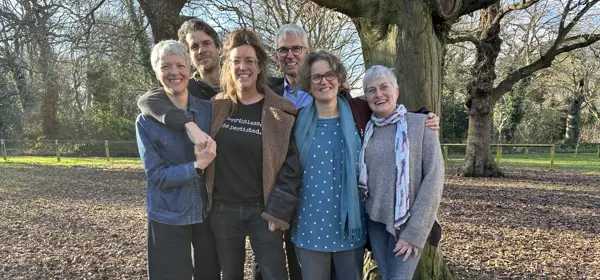Call for more consideration to be given to EDI
Call for more consideration to be given to EDI
Policy making in healthcare must include values early on to reduce inequality
Inclusivity and intersectionality must be placed at the heart of healthcare policy design, according to the BMA patient liaison group annual symposium.
Diversity, equality and inclusion need to be ‘woven into’ policy making from the beginning rather than simply regarded as a retrospective add-on if equity in health is to be improved, the PLG event heard this week on 1 May.
The annual symposium, the theme of which sought to explore how diversity, co-design and intersectionality can be better valued in medical policy, heard professional insights and personal testimony from a broad range of speakers, including clinicians and patients.
Among those contributing to the event, which was presided over by PLG chair Christine Douglass and symposium leads Emma Beeden and Charlotte Paddison and PLG equalities champion Rowena Skinner, was NHS Confederation chair and the NHS Race and Health Observatory founder Lord Victor Adebowale.
Trend reversing
Lord Adebowale said that, since its founding, the NHS had sought to address health inequalities by ensuring the most vulnerable in society had access to care, but that this trend was now under threat.
He said: ‘[Under] its founding principles, the life expectancy of poor people increased for the first 60 to 65 years of the NHS’s existence. What we’re seeing in parts of the country is a reversal of that trend particularly for those people who are poor or black and minority ethnic.
‘It seems to me that it is core to the NHS's reason for existence and credibility that we reverse that trend, and we can’t reverse that trend unless we are prepared to engage with communities.’
Lord Adebowale said key to improving inclusivity in the design and delivery of healthcare was ensuring meaningful engagement with patients, something that required honesty and a willingness to re-evaluate power dynamics.
He said: ‘The most powerful intervention that can be made in any system, if you want to move the needle towards equity, is the impact of [an organisation’s] chief executive or chair. What they say what they do, how they do it, and how long they do it for, has the greatest impact on shifting organisational culture towards equity.
‘Power is important in the development of policy or the application of it, and you can't do community engagement that's credible, without giving the power.’
Children's rights
Other speakers at the symposium included consultant obstetrician and gynaecologist and UCL Institute of Women’s Health Honorary Associate Professor Amali Lokugamage, who delivered a talk on taking an intersectional approach to healthcare and policy.
Royal College of Paediatrics and Child Health head of engagement for children and young people Emma Sparrow, who described how taking a rights-based approach to policy design helped to ensure inclusivity and effective outcomes.
She said: ‘It all starts with children’s rights for us RCPCH. It’s core to all of our work to really understand the UN Convention on the Rights of the Child, and to think about actually how that has an impact in everything we do with children and young people making sure that actually we have the right services, the right places, the right people, and the right support.
‘Having a rights-based approach means that we take all of these things into account when thinking about how we’re going to engage how we’re going to get children and people in helping to create the policies with and for us.’
The issue of improving inclusivity in medicine is something the BMA has sought to address, with the association having undertaken work to increase diversity with leadership, committees and representation at annual representative meeting as well as in the wider medical profession.
To find out more about this year’s symposium and the wider work of the PLG, please click here



